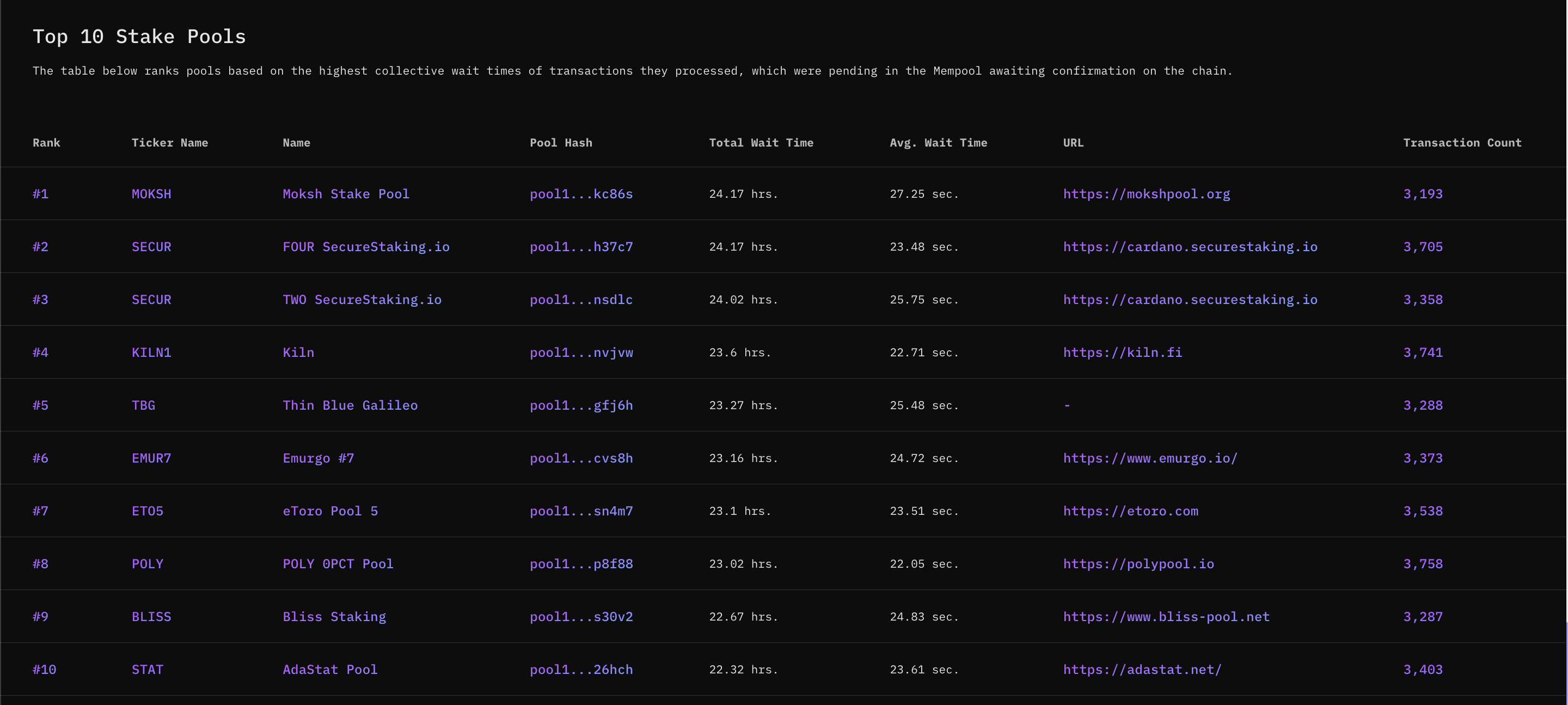Fairness in Blockchain: Assessing Transaction Wait Times and Stake Pool Performance on Cardano
Introduction to Blockchain Fairness
Blockchain technology, while innovative and transformative, brings about new challenges in ensuring fairness and equity among its users. In blockchain networks, especially those utilizing a Proof of Stake (PoS) consensus mechanism like Cardano, fairness can be viewed through the lens of transaction wait times—the time it takes for a transaction to be confirmed on the network.
Fairness, in this context, means that all users should have their transactions processed in a reasonable amount of time, without undue delay compared to the average network time. However, discrepancies in transaction wait times can suggest potential issues with how transactions are selected and processed by validators, known as stake pools in Cardano.
Understanding Transaction Wait Times
Transaction wait time is the interval between when a transaction is submitted to the network and when it is confirmed. In an ideal scenario, this time should be minimal and consistent across all network transactions, but this is not always the case. Users experiencing consistently longer wait times may be at a disadvantage, which raises concerns about fairness in the network.
The Role of Stake Pools in Cardano
In Cardano’s PoS system, stake pools are responsible for validating transactions and creating new blocks. Unlike systems where transaction fees can influence which transactions are picked up first, Cardano's design prioritizes equity in transaction processing. However, the possibility of stake pools prioritizing transactions—whether intentionally or due to the design of their transaction selection algorithms—can lead to uneven wait times.
Measuring Fairness Through Stake Pool Performance
To address potential fairness issues, it is essential to assess how stake pools are performing in terms of processing transactions. Traditional metrics like the average wait time of transactions processed by a pool might not provide a complete picture, as they can be skewed by pools that process fewer but more delayed transactions. Therefore, a more comprehensive approach is to evaluate pools based on the total sum of wait times for all transactions they process.
Criteria for Assessing Stake Pools:
- Total Wait Time: Pools with a higher total sum of transaction wait times are considered to be contributing more positively towards network fairness. These pools potentially assist users whose transactions have been waiting longer to be included in a block.
- Number of Transactions Processed: Evaluating pools based on the number of transactions they process allows for a fairer comparison, as it balances the effect of pools that might only occasionally mine transactions with long wait times.
Identifying Great and Suboptimal Pools
Under this framework, stake pools that consistently mine transactions with shorter wait times, especially if they control a large stake, might be viewed with suspicion. They could be seen as favoring certain transactions, which contradicts the principle of fairness in blockchain. Conversely, pools that include transactions with longer wait times are seen as aiding users who might otherwise be disadvantaged, labeling these as good pools.
Here is a list of good pools:

Conclusion
Fairness in blockchain is a critical issue that extends beyond the technical functioning of the network to impact user trust and network integrity. By measuring the performance of stake pools based on the collective wait times of the transactions they process, stakeholders can gain better insights into which pools are upholding the principles of equity and which may be undermining them. This approach not only promotes a more just blockchain ecosystem but also encourages stake pools to adopt practices that benefit all users equally.
As blockchain technology evolves, continuous refinement of these metrics and methods will be necessary to ensure that fairness is maintained as a core component of decentralized digital economies.
Do you have an alternative thought on fairness on blockchain? We would love to hear from you. Contact us at [email protected].